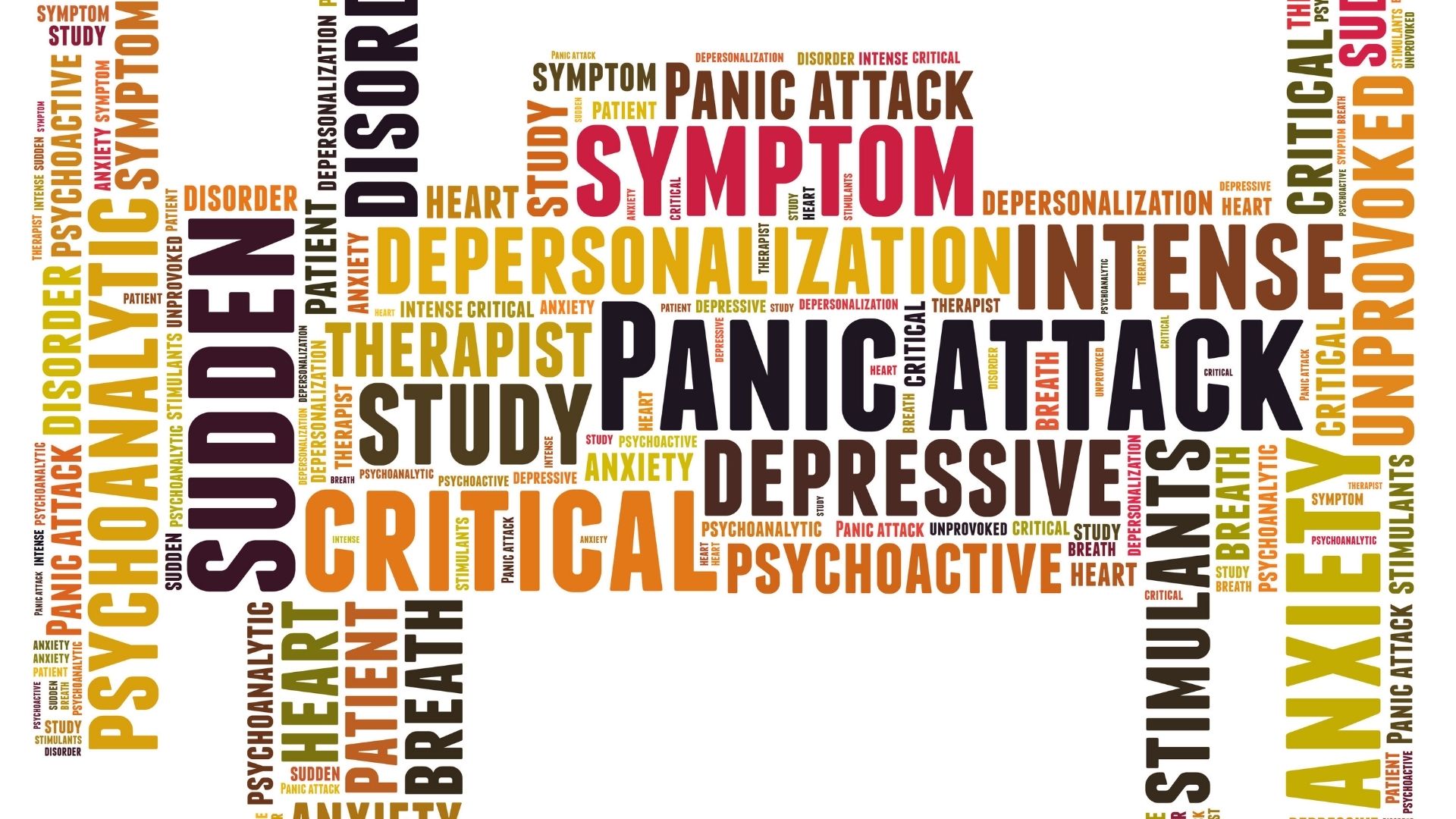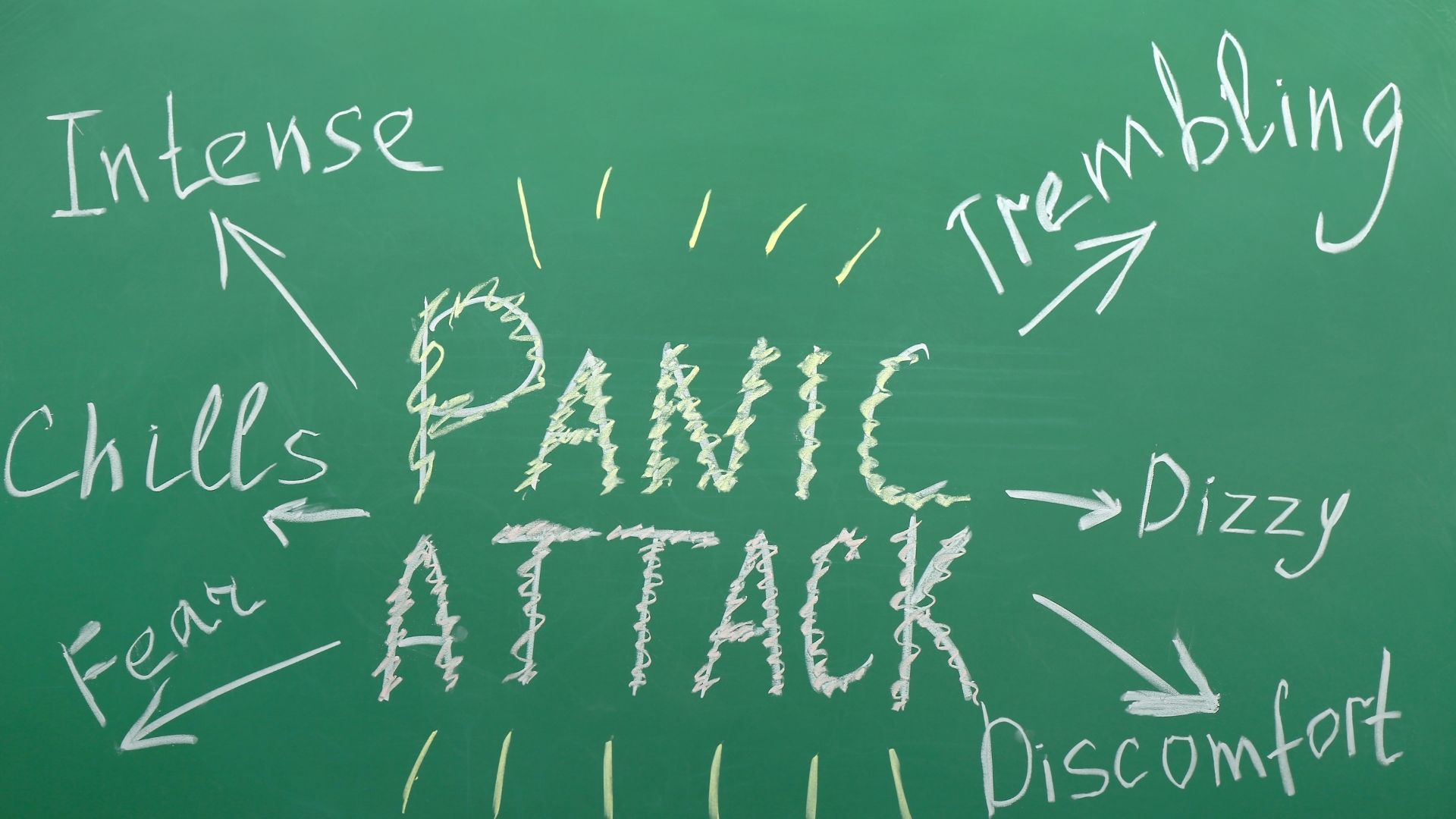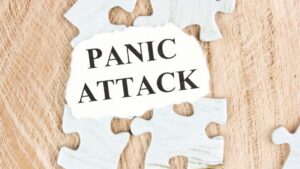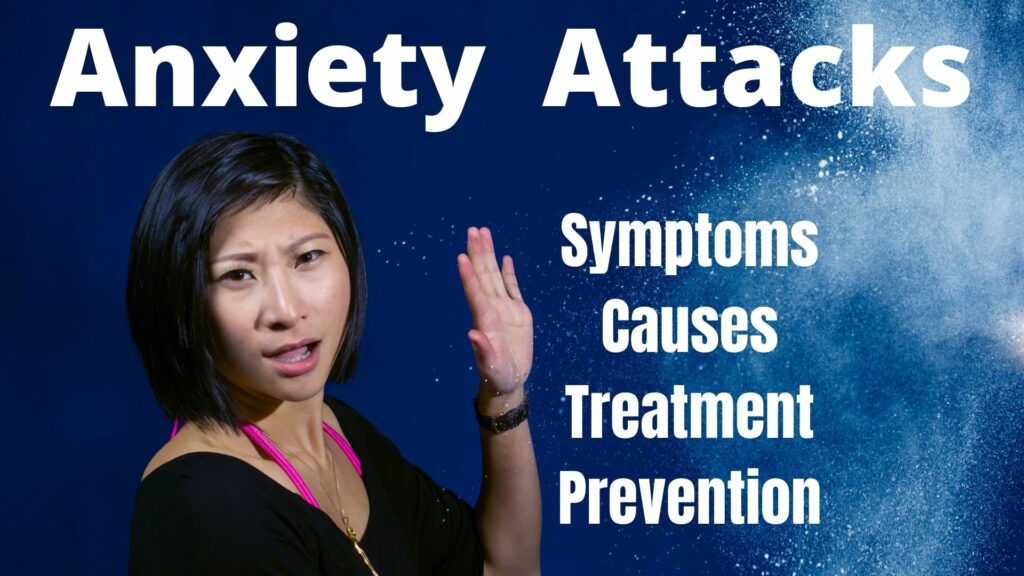Contents
Understanding Anxiety

Anxiety is a feeling of fear, panic, and restlessness. It is a psychiatric condition that leads to excessive nervousness, fear and worry. The researchers define anxiety in various forms. Some name it as ‘an emotion characterized by feelings of tension, worried thoughts and physical changes in blood pressure. It affects 30% of adults approximately. Anxiety attack is an anticipation of a future concern and is more associated with muscle tension and avoidance behavior. It can have a specific trigger, such as related to the workplace, health, relationship issues, and exams.
Moreover, it is a diagnosable condition that is slightly different and less severe than a panic attack. The condition can also involve physical symptoms such as raised heart palpitation or a’ knot in the stomach’. It can be a response to worry or fear that tends to develop gradually. Consequently, it can be mild, moderate, or severe, which tends to build up and continue for some time.
Symptoms Of Anxiety Attack

Symptoms vary depending on the type of anxiety disorder you have. General symptoms of an anxiety attack include:
- Worry
- Restlessness
- Sadness
- Irritability
- Feeling pressure
- Lack of concentration
- Racing heart
- Headache
- Nausea
- Perspiration
- Trembling
- Difficulty in breathing (sometimes)
- Unconsciousness
Causes Of Anxiety Attack
Anxiety is like other forms of mental state that don’t come from mental weakness, character flaws, or problems with upbringing. Researchers don’t know exactly what causes anxiety these are the following factors that have been beheld for it:

- Pressure of work
- Financial problem
- Relationship issues
- Administrative issues
- Changing life conditions
- Short term memory issue
- Chronic health conditions
- Social phobia
- Trauma
- Drug or alcohol abuse
- Changes in the brain
- Panic attack
Complications
Adrenaline is a flight hormone produced in the medulla in the adrenal glands and some of the neurons of the central nervous system. Hence, it allows you to battle a danger or escape to safety. High levels of adrenaline increase chronic stress, depression, and weight gain, etc. Other risks include the following-
- Anxiety disorder
- Heart diseases
- High blood pressure
- Diabetes
- Frequent infections
- Migraine
Anxiety And Shaking
Anxiety and shaking are very common in human beings. It is a normal part of life, but it can often be experienced on different levels. Tremors caused by anxiety aren’t dangerous, but they can be uncomfortable. When your body is subjected to stress, it goes into flight, fight, or freeze mode. Stress hormones speed up your heart rate, blood pressure, and breathing rate, as a signal, your muscles act, primarily leading to a trembling sensation, twitching, or shaking. The intensity of anxiety depends on the level of stress you experience in your daily routine and the way it affects your body. It is caused by an imbalance between what you feel is happening around you and how much control you have.
Prevention of Anxiety Attacks
Reducing stress levels can make you feel better and reduce anxiety. In a study, researchers found out the association between ‘positive effect’. Feelings like happiness and contentment and enthusiasm beget the brain with peace. Thus, they show a positive effect on health, such as a fall in cardiovascular risks, by 22%.
Strategies to manage anxiety attacks include:
Identify what is the factor of stress
Monitor your thoughts every day. If you feel stressed out, then write down the cause, your thoughts, and your mood. Once you know what’s troubling you, strategize a plan for coping with it.
Build strong relationships
Research has found out that negative or hostile reactions with your loved ones cause immediate stress-sensitive hormones. Reach out to family members and close friends and let them know that you are going through tough times. They may be able to offer some support to you. Try to do social interactions that can surely help with the ideas.
Walk away while angry
Before you react, count to10, then reconsider it. Walking away can help you work off steam.
Exercise daily
Physical activities including exercise increase the production of endorphins (natural mind boosters). Taking a daily walk or other forms of exercise can make a difference in reducing stress levels. Do aerobic exercises such as jogging, swimming, running, tennis, and dancing, etc. Perform yoga, meditation, and deep breathing that lessen the symptoms of anxiety and improves mental health.
Eat foods that help with anxiety and stress
Researchers explain ‘the gut as the second brain. When essential nutrients are not adequately available, there is a direct effect on the production of neurotransmitters and brain chemistry that increase or lessen anxiety-related behavior. Avoid binge eating your go-to comfort foods which are bad for your health. Reduce caffeine intake, avoid alcohol, and quit smoking to reduce the risk of aggravation. Moreover, eat nutritious foods that have mood-boosting properties. Include the following in your diet:

- Asparagus
- Avocado
- Blueberries
- Turkey
- Almonds
- Yogurt
- Kale or Arugula
- Salmon
- Fatty fish
- Eggs
- Pumpkin seeds
- Turmeric
- Chamomile
- Green tea
- Chia seeds
- Spinach or Swiss chard
Rest your mind
As per American Psychological Association, stress keeps more than 40% of adults lying awake at night. To help ensure you get seven or eight hours of sleep, cut back on caffeine; remove distractions of television, computers, and cell phones; and go to bed on time every day. Do yoga and exercise every day.
Get help from a psychologist or a psychiatrist
If you continue to suffer from anxiety attacks, consult a psychologist or a psychiatrist. He can diagnose and manage your condition effectively. He can prescribe some medications and develop a plan for changing them.
Acupuncture and Acupressure
These may help to manage some of the effects of stress and anxiety on the body. Applying pressure to certain points is believed to mobilize energy in the channels. This also helps to communicate with the nervous system to stimulate the release of those feel-good chemicals. However, acupressure points according to the stress could trigger the brain to lessen cortisol levels that reduce the stress. It also increases dopamine and serotonin levels that stimulate the love or happiness hormone. Consequently, it promotes better sleep.
Treatment For Anxiety Attack
Treatment for anxiety attacks includes therapy and several medicines. Cognitive-behavioral therapy is talk therapy. However, in this method, psychologists interact with the patient and try to alter negative thoughts that cause anxiety problems. Consequently, the medicines listed below can be used on the advice of a psychiatrist:
- Anxiolytic medications relieve anxiety and stress and are sleep-aid.
- Sedatives beget lethargy and calmness.
- Nerve pain medications reduce pain caused by damaged nerves.
- Beta-blockers work best for short-term anxiety caused by social phobias.
- Selective serotonin reuptake inhibitors(SSRI) is a drug designed to ease up the symptoms.
One can use these medicines for the treatment of anxiety attacks; however, talk to a doctor before taking them. You should not consume any medicines before consulting a doctor.
Conclusion
If you are suffering from an anxiety attack, it’s important to see a doctor to find the underlying cause. In the meantime, however, there are some things you can do to cope with your symptoms. Start by getting enough sleep every night and making exercise a part of your daily routine. These two lifestyle habits alone can go a long way in reducing anxiety.
For more information, please contact MantraCare. Anxiety is a common mental health condition characterized by persistent feelings of worry, fear, and apprehension. If you have any queries regarding Online Anxiety Counseling experienced therapists at MantraCare can help: Book a trial Anxiety therapy session



Comments are closed.